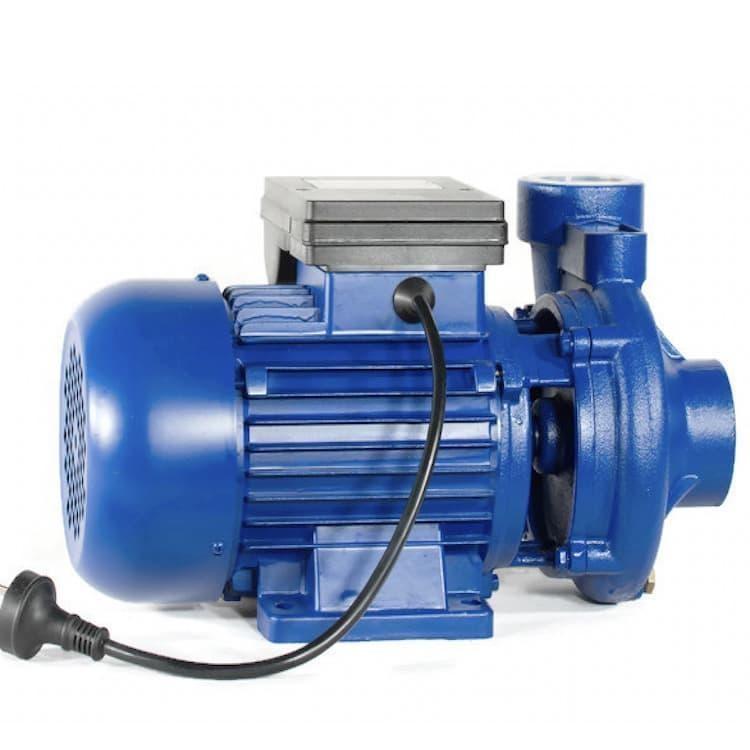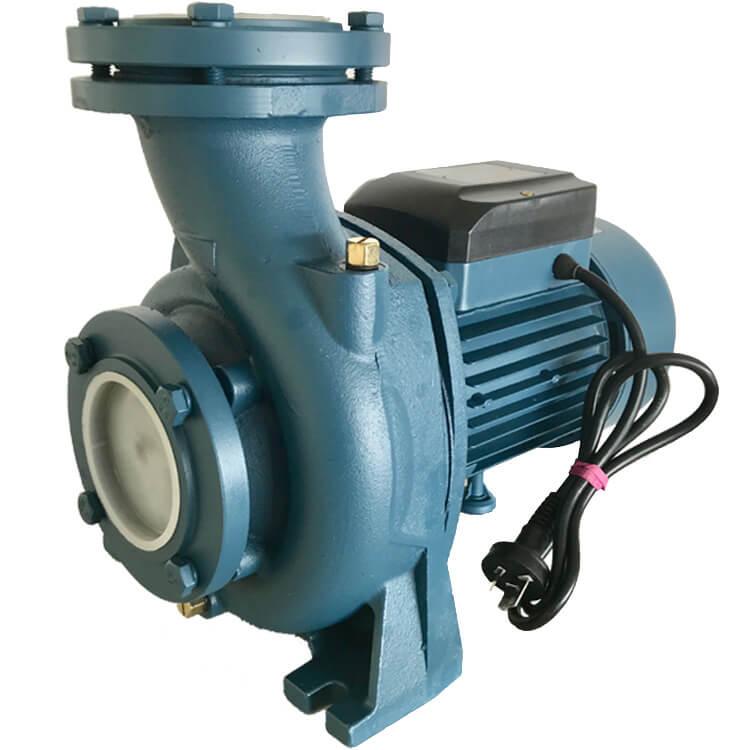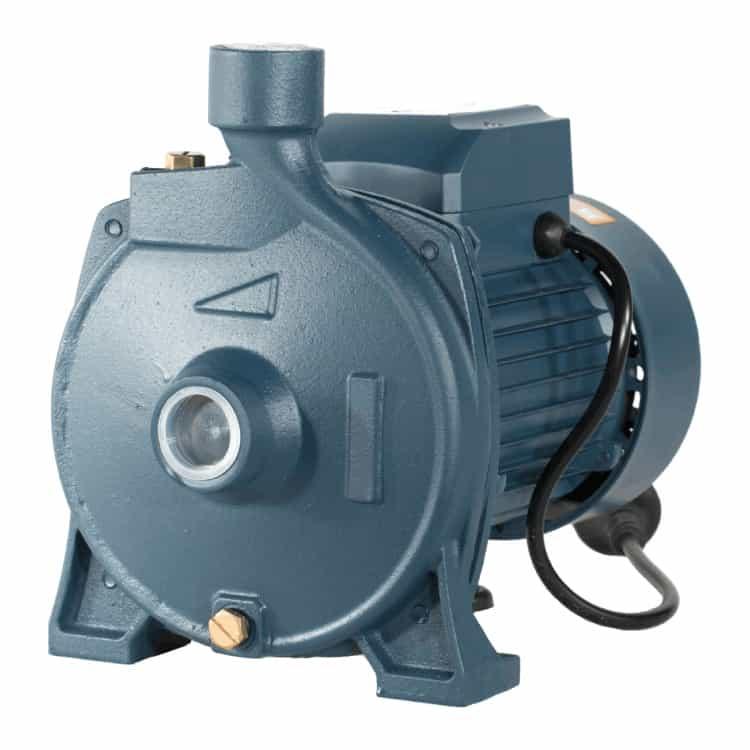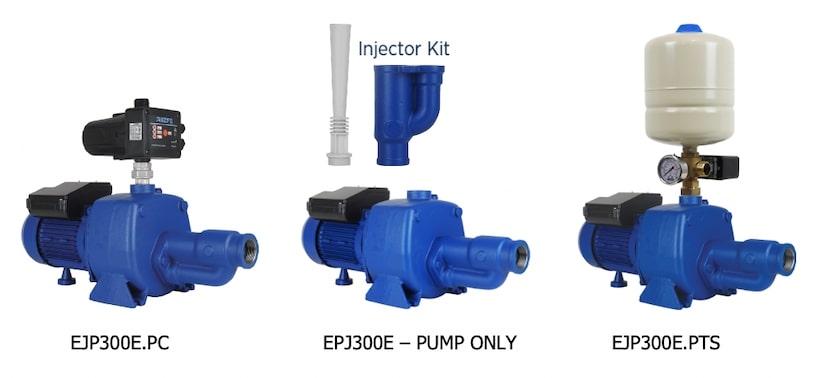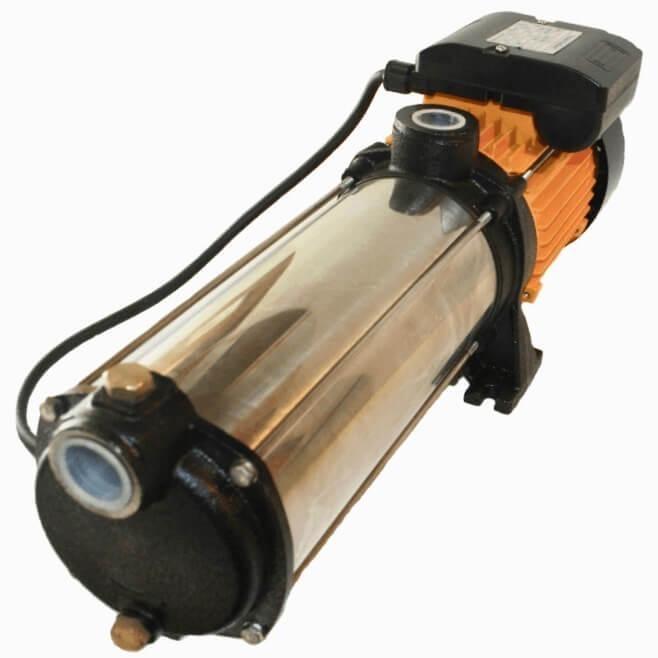What are different types of pumps and their working applications?
There are many different types of pumps available to buy on the market. Today we’d like to help you to understand some of the most commonly used water transfer pumps for the farm in Australia and their working applications.
What are four different types of water pumps?
Water pumps play a crucial role in agriculture, irrigation, and household applications by moving water efficiently from one location to another. On farms, water pumps are essential for transferring water, irrigating crops, delivering water to livestock, and handling chemicals. The four most commonly used types of water pumps in farming operations are water transfer pumps, irrigation pumps, chemical pumps and house pumps.
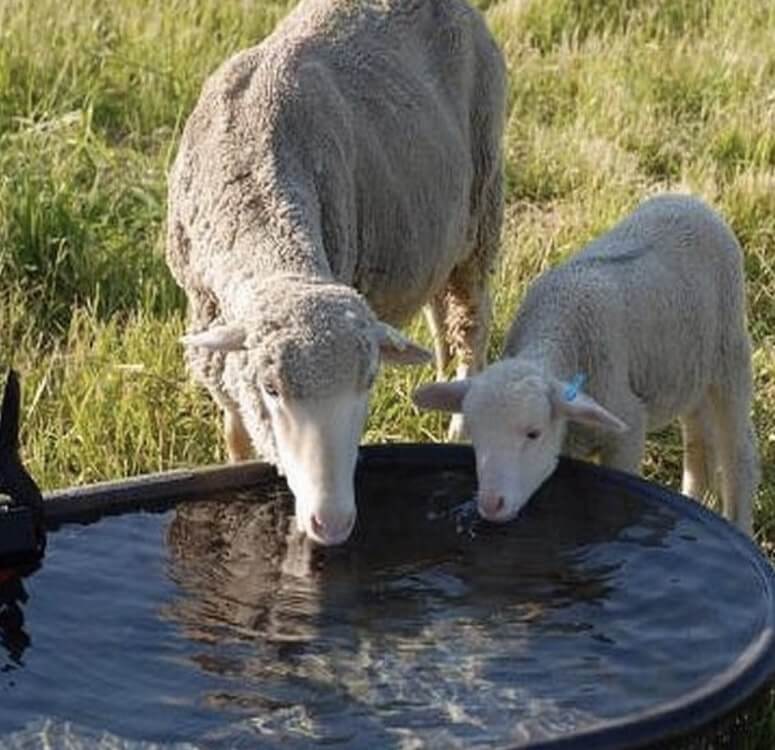
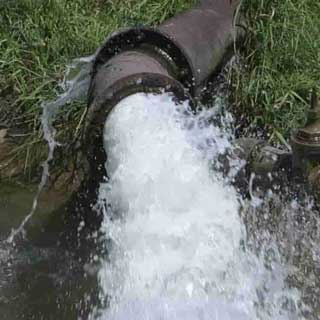
1. Water Transfer Pump
A water transfer pump is designed to move large volumes of water from one place to another quickly. These pumps are widely used on farms for filling water tanks, draining flooded areas, and transferring water from dams, rivers, or boreholes to storage tanks or troughs. Common Uses: Moving water between storage tanks Draining flooded areas Filling irrigation reservoirs Emergency water removal
Types of Water Transfer Pumps:
- Centrifugal Pumps – Use a spinning impeller to move water efficiently.
- Diaphragm Pumps – Suitable for transferring water containing debris or solids.
- High Pressure Pumps – Ideal for applications requiring strong water flow over long distances.
Pros: ✔ Efficient in moving large volumes of water Available in electric, petrol, and diesel models Easy to use and maintain
Cons: ✖ Not ideal for deep wells or suction-limited applications. May require priming before use
2. Irrigation Pump
An irrigation pump is specifically designed to supply water to crops through various irrigation systems such as sprinklers, drip irrigation, and surface irrigation. These pumps are crucial for ensuring crops receive adequate water, especially in dry regions.
Common Uses:
- Powering sprinkler systems
- Delivering water to drip irrigation networks
- Drawing water from rivers, dams, or underground sources for irrigation
Types of Irrigation Pumps:
- Centrifugal Pumps – Best for moderate flow and pressure applications.
- Submersible Pumps – Installed underwater, suitable for deep boreholes and wells.
- Booster Pumps – Increase water pressure in irrigation systems.
Pros:
✔ Provides consistent water supply to crops
✔ Can be automated for efficiency
✔ Suitable for various irrigation techniques
Cons:
✖ Requires proper selection based on irrigation system.
3. Chemical Pump
A chemical pump is designed to handle and transfer chemicals, fertilizers, and other liquid solutions safely. These pumps are commonly used in farming for spraying pesticides, applying liquid fertilizers, and managing water treatment processes.
Common Uses:
- Spraying pesticides and herbicides on crops
- Transferring liquid fertilizers to irrigation systems
- Treating farm water supplies with disinfectants or nutrients
Types of Chemical Pumps:
Peristaltic Pumps – Use a flexible tube to transfer precise chemical amounts.
Centrifugal Chemical Pumps – Handle large volumes of liquid chemicals safely.
Pros:
✔ Resistant to corrosion from chemicals and fertilizers ✔ Provides accurate and controlled liquid application ✔ Reduces manual handling of hazardous substances
Cons:
✖ More expensive than standard water pumps
✖ Requires regular maintenance to prevent blockages and wear and corrrect system setup
4. House Water Pump
Common Uses:
Supplying water to homes and farm buildings Boosting water pressure for household appliances Drawing water from tanks, wells, or boreholes Types of House Water Pumps:
Jet Pumps – Suitable for shallow and deep wells.
Submersible Pumps – Installed inside a borehole or water tank for efficient delivery.
Pressure Pumps – Automatically regulate water pressure in household plumbing.
Pros:
✔ Ensures consistent water pressure for daily use
✔ Can integrate with rainwater harvesting systems
✔ Energy-efficient models available
Cons:
✖ Requires installation and occasional servicing
✖ Power-dependent (unless using solar or manual alternatives)
Each type of pump serves a distinct purpose, and selecting the right one depends on your specific needs—whether for irrigation, water transfer, chemical handling, or household use. Ensuring you choose the correct pump type and size can improve efficiency, reduce costs, and optimize water management on farms and rural properties.
How do water transfer pumps work?
Water transfer pumps move water from one place to another with high flow and low pressure. The inlet hose (often with a foot valve attached) is placed in the water source you wish to move the water from, and the outlet hose is placed where you wish the water to be moved to. Once the pump is turned on using power or fuel, dependant on the transfer pump type, your water is transferred.
What are water transfer pumps used for?
Water transfer pumps on the farm are used for many applications including: storm water, dewatering, wastewater and water collection from dams, creeks and rivers and stock watering.
What types of pumps are best for water transfer?
There are many pump types used for water transfer on the farm including: petrol pumps, centrifugal pumps, diesel pumps, and a wide variety of submersible pumps.
Which pump is best for water transfer?
There are many great pumps on the market with some brands in the market for many years which are household names and others which are lesser known but of great quality and pricing for the agricultural market. The 3 water transfer pumps mentioned below are our best selling transfer pumps as the meet the requirements of most farmers on a day to day basis, with all pumps recognised for their studiness and reliability with terrifice pricing including delivery throughout Australia.
- 2DK20 – A high flow centrifugal water transfer pump, ideal for around the farm for dam and stock water movement delivering up to 500 L/min with 17m head and 7m lift. Just $389 delivered to your door. (blue pump)
- NF-130B – For faster water transfer our NF-130B with 3” flange will deliver a maximum of 900 L/min with 13m head and 7m lift. Just $550 delivered throughout Australia. (middle pump)
- CPM200 – Centrifugal water transfer pump delivering a maximum of 150 L/min with 46m head and 7m lift. A bargain at $309 delivered. (pump on right)
Note: above prices are subject to change.
Which water transfer pump is used the most on a farm?
Centrifugal pumps are commonly used for water transfer around the farm and garden as they give continuous water supply with a high discharge flow rate at lower head which is ideal for water transfer around the farm. Farmers also commonly use petrol and diesel pumps for water transfer with most preferring the use of 240v rather than having to constantly feed a fuel pump to keep it running. Fuel pumps are ideal when their is no power where the pump needs to be located.
How does a centrifugal water pump operate?
A centrifugal water pump operates by moving water using kinetic Energy. The transfer of the rotational energy through the driven rotor or rotors (impellers) in the pump creates pressure to force the water to the outlet of the pump.
Which is the best centrifugal pump?
The centrifugal pump that best meets your application and quality desired of a pump and at your price expectation is the best pump. Water Pumps Now has a great selection of centrifugal pumps to meet your needs and price range with our centrifugal pumps delivered to your door throughout Australia. View our farm pumps or contact us with your application and required specifications and our engineers can size up the best centrifugal water transfer pump for you.
Do centrifugal pumps need priming?
Pump failure can occur if your pump is not primed before use. Centrifugal pumps generally require water in the line to operate. The use of a non-return valve on the suction side of your pump can keep water in the line even when not in use and is an invaluable part of most pump set ups and making the task of priming the pump a simple operation.
What is the difference between Irrigation Pumps and Water Transfer Pumps?
Each pump style is used for different purposes on a farm and can often be used for both water transfer and irrigation dependant on the pressure the pump is capable of. Water transfer pumps typically deliver higher flows of water at lower pressure and irrigation pumps typically move lower flows of water at high pressure.
What are the 4 main types of irrigation?
Irrigation is the process of supplying water to crops and landscapes to support plant growth, particularly in areas with insufficient rainfall. The four main types of irrigation systems commonly used are surface irrigation, sprinkler irrigation, drip irrigation, and subsurface irrigation. Each system has its advantages and is suited to different types of soil, crops, and environmental conditions.
1. Surface Irrigation:
Pros:
✔ Low initial cost and simple to implement
✔ Suitable for a wide range of crops
✔ Does not require advanced technology
Cons:
✖ Can lead to water wastage due to runoff and evaporation
✖ Less efficient in water use compared to other methods
✖ May cause soil erosion if not managed properly
2. Sprinkler Irrigation
Sprinkler irrigation mimics natural rainfall by spraying water through pipes fitted with rotating nozzles or sprinkler heads. This method is commonly used for large agricultural fields, golf courses, and gardens.
Pros:
✔ Suitable for a variety of crops and terrains
✔ Reduces soil erosion and water runoff
✔ Can be automated for efficiency
Cons:
✖ High initial setup cost
✖ Water loss due to wind drift and evaporation
✖ Requires a pressurized water source
3. Drip Irrigation
Drip irrigation, also known as micro-irrigation, delivers water directly to the plant's roots through a network of tubing and emitters. It is highly efficient and is widely used in orchards, vineyards, and row crops.
Pros:
✔Reduces water wastage by minimizing evaporation and runoff
✔Enhances plant growth by providing consistent moisture
✔Helps prevent weed growth since water is targeted at plant roots
Cons:
✖ Initial setup can be costly
✖ Requires regular maintenance to prevent clogging of emitters
✖ Not suitable for all types of crops or large-scale irrigation
4. Subsurface Irrigation
Pros:
✔ Reduces water evaporation and loss
✔ Minimizes weed growth and soil surface evaporation
✔ Highly efficient in water use
Cons:
✖ High installation and maintenance costs
✖ Difficult to monitor water distribution underground
✖ Risk of clogging in pipes over time
✖ Each irrigation method has its unique benefits and drawbacks, making it essential to choose the right system based on factors like soil type, crop requirements, water availability, and budget.
What are irrigation pumps used for?
Water intake irrigation pumps are used where you take water from a dam, river, creek or water tank and move it to another location
- Water treatment irrigation pumps are used when you wish to add chemicals or fertilizers to the water as you move it.
- Water distribution irrigation pumps are used to to deliver water under pressure to drippers, sprinklers, pivots and spray units.
What type of pump is best for irrigation?
The most commonly used irrigation pumps are horizontal pumps. They are typically a lower cost option, easy to install and maintain.
Three of our biggest selling high pressure irrigation pumps are:
- HMC10SC: 10 stage multistage pump delivering a maximum of 92 L/min with a maximum head of 94m.
- HMC170-6SH.PTS:10 stage multistage pump delivering a maximum of 170 L/min with a maximum head of 78m, comes with pressure tank, digital pressure switch and fittings.
- EJP300E.PTS: Self priming irrigation pump with presssure tank, switch, gauge, tee and injector kit with a maximum flow of 150 L/min, 60m head.
What size irrigation pump do I need?
There are a number of easy steps to size the best irrigation pump for your application.
- Flow required at the discharge point
- The vertical height from the pump to the point of discharge
- The vertical height from the water source to the pump
- The size and type of pipe being used
- The distance from the pump to the point of discharge
- Are you running sprinklers or drippers? How far apart are they and what is their L/min and PSI rating?
- What power source are you intending to use. 240v, 415v or fuel or diesel?
Water Pumps Now stock a wide range of high pressure irrigation pumps suitable for farm use for all of the above applications. Once we receive the above information, our pump engineers can size the best irrigation pump for your system to ensure you receive the output and pressure required for your application.

